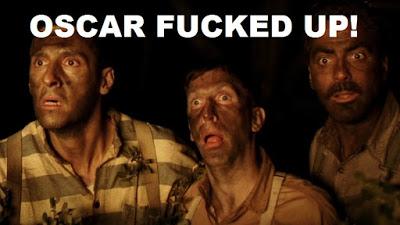Loretta Young: The Farmer’s Daughter (winner)
Dorothy McGuire: Gentleman’s Agreement
Rosalind Russell: Mourning Becomes Electra
Joan Crawford: Possessed
Susan Hayward: Smash-Up, the Story of a Woman
What’s Missing
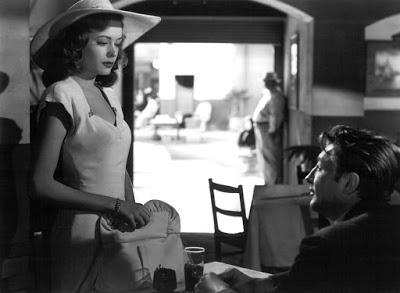
When I look at 1947, it feels like a very strange year in movies. I don’t know if Jane Greer’s role in Out of the Past is big enough for her to get a nomination for Best Actress, but she is an almost pure distillation of a femme fatale, and if the role is big enough, I’d want her here. I’m also a little surprised that Gene Tierney wasn’t nominated for The Ghost and Mrs. Muir, since this seems to be Oscar’s wheelhouse. The same could be said of Maureen O’Hara and Miracle on 34th Street. I like Rita Hayworth in The Lady from Shanghai as well. But the big one, the one that I simply don’t understand being skunked in the major categories, is Black Narcissus in general, and Deborah Kerr’s performance as Sister Clodagh in specific.
Weeding through the Nominees
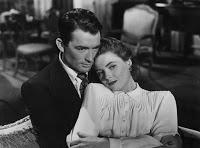
5. I like Gentleman’s Agreement well enough and I like Dorothy Maguire well enough as well, but she’s hampered by being at best the third most compelling woman on the screen. Both Anne Revere and especially Celeste Holm (who won in a supporting role) are far more interesting. That’s a problem. There’s nothing wrong with Maguire’s performance, but when she’s on screen with either Revere or Holm, she becomes more or less invisible. That’s not going to get you a statue, even in the weakest of nomination years.
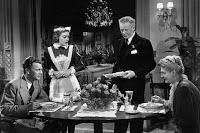
4. Winner Loretta Young is charming in The Farmer’s Daughter and she handles the role well. So why is she this far down? Because the role and the movie are fluff and little more than cinematic candy. Aside from her Swedish accent, there’s very little to remember about her, the role, and the movie a week after watching. I think I understand why she was nominated, but I don’t think she belongs here. Sweet and charming isn’t enough and shouldn’t have been close to enough to get her a win. Really, that’s why I do these twice a week.
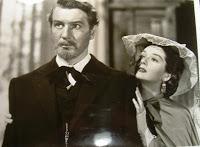
3. Rosalind Russell does everything she can in Mourning Becomes Electra and I credit her for doing that, but it’s simply not enough. It’s fair to say, though, that it’s not really her fault. She’s terribly miscast. I don’t dislike Rosalind Russell even if I don’t always like her movies, and that’s a problem here as well; Mourning Becomes Electra is terribly paced through its first 90 minutes. Again, this isn’t Russell’s fault, but it does downgrade the performance. She gives it a solid try, but it’s just not enough.
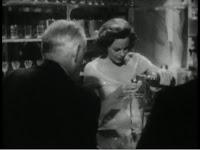
2. Smash-Up was my first Susan Hayward movie, and it’s one that seems to be in many ways a typical role for her. I liked this pretty well, even if it’s more or less a female version of The Lost Weekend. What I really like is that Hayward was clearly willing to let herself be shown on camera as something other than a creature of pure glamor and beauty. She is willing to, as I said in my review of this, like a couple of miles of bad road. I like this nomination quite a bit, even if I didn’t love the movie. But it’s not what gets to the top.
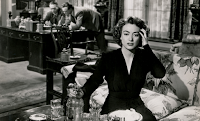
1. Joan Crawford is my pick amongst the actual nominees. Possession isn’t her best film, not with Mildred Pierce a couple of years before, but it’s the best of the five nominations. She is surprisingly compelling in the film, and she’s far and away the best thing here, although Eddie Albert is good as well. Joan Crawford was at her best when she played crazy, and here, she is literally playing someone who is mentally ill. If I’d had a vote and was given this slate, she’d be the one who I’d want to see accepting the statue. But she’s not the real winner.
My Choice
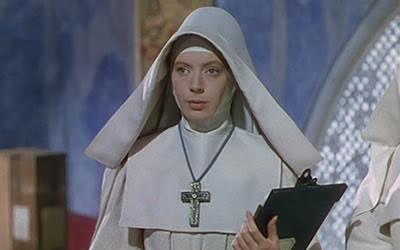
I’m deciding that Jane Greer could have been here and that she should have been here, and I don’t think she’d be a bad choice. Gun to head, Deborah Kerr would get the statue from me, though, even though Kathleen Byron is the best thing in the film (and I don’t know how she didn’t get a nomination in a supporting role, either). Both Kerr and Greer deserved to be here over everyone actually nominated, and I’d have been happy with either of them winning over all of the options we’ve been given.
Final Analysis
